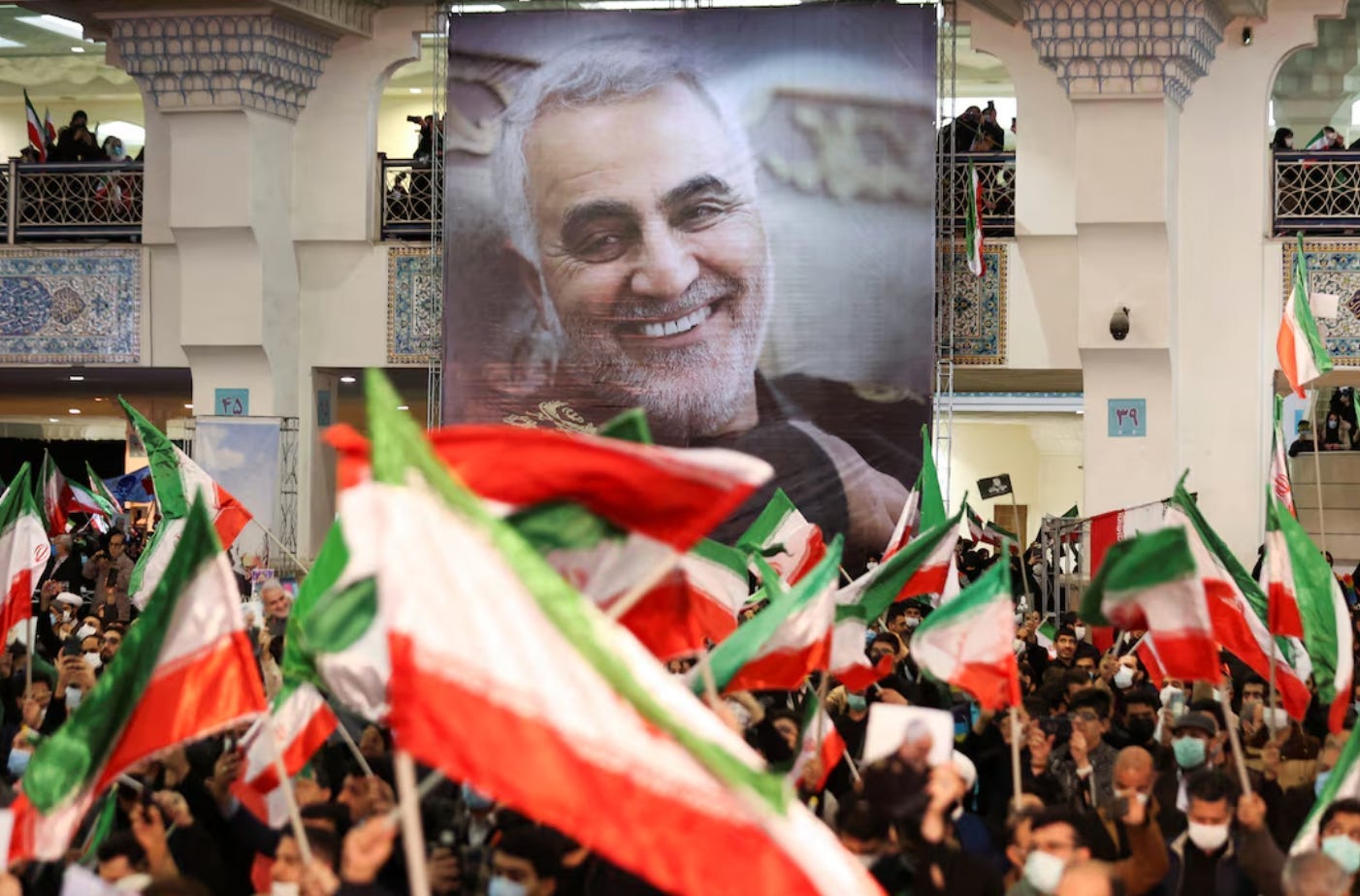reposted from
Dec 13, 2024
Editor’s Note:
Two political analysts from the University of Tehran look back on the pivotal moments when the US lost the hearts and minds of the Iranian people, though it was once so close to winning them.
The following article is based on an exclusive interview conducted by the China Academy, edited for clarity and conciseness.
Zeinab Ghasemi Tari (Associate Professor,Department of North American Studies, Faculty of World Studies, University of Tehran):
Many Iranians were once highly optimistic about the nuclear negotiations. When the JCPOA (also known as the Iran nuclear deal) was signed, many people genuinely believed that things were going to get better for them. Without proper justification, Trump's America left the agreement unilaterally. Even before that, the Obama administration failed to adhere to what it had promised according to that deal. People started to think about that contradiction there. Then came the assassination of General Soleimani, who, regardless of the diverse political views in Iran, was widely respected and loved. He was not a partisan political figure, but a man really focused on the national interest and on the security of Iran.
These incidents will have a long-lasting impact on not just the current generation but also the future generations, much like how we are still talking about the 1953 coup. I'm sure that future generations will also talk about how America left the deal and how America assassinated General Soleimani when he was on a diplomatic mission in another country. None of that was legal-no aspect of it.
How the images of the U.S. changed in Iran is a very complicated issue. We have many Farsi-speaking channels operating inside Iran that are supported by either America or Britain. They constantly produce content that portrays a positive image of Americans and the West while depicting the other side negatively. By shaping public opinion within Iran, this content aims to create a dichotomy and drive a wedge between the Iranian people and their government.
All sides are competing for the hearts and minds of the Iranian people.
Elham Kadkhodaee( Associate Professor of Zionism Studies, Faculty of World Studies, University of Tehran)
Inside Iran, there are various platforms where the Iranians can gain access to the news, music or other cultural products of the U.S. Many Iranians have the language competence to read in English. But how many Americans can read Farsi? Americans rely on content that is produced in English. We don’t have that problem in Iran. You can easily have access to American movies, even very recent ones, in Iran. So in that sense, Iranians have a complicated image of the U.S., and it's becoming more and more complicated-nothing is black and white.Iranians might have a very positive, even utopian, view of the U.S. as a technologically advanced country. They may also dream of going to the U.S. to continue their education. However, from a political standpoint, several key turning points have shaped how Iranians view the U.S. The first is the 1953 coup, followed by the imposition of heavy sanctions on ordinary Iranians, which have made their daily lives very difficult. Then there was the JCPOA and Trump's unilateral withdrawal from it, and, last but not least, what is happening right now in Gaza.
I believe the recent developments in Gaza have raised a new awareness among Iranians. About ten years ago, I taught a course on Iranian studies that focused on how Iran was academically portrayed in different countries. As part of the course, students were assigned to read Edward Said’s Orientalism. I recall my students saying something like, “Okay, Said wrote this about the Arabs and how Westerners perceive them as a threat, but that’s not the case with Iranians.” It showed how people back then firmly believed that the West could differentiate between Arabs and us, who are not Arabs.
But after what happened in Gaza, many Iranians came to realize that, for the Americans, there is truly no distinction between Iranians, Iraqis, and Afghans. There isn’t even a difference between Iranians and other Asians. The U.S. views anyone outside their sphere of influence, who doesn’t follow the U.S. policies, as simply part of “the rest of the world.”
Iranians are increasingly convinced that what is happening in Gaza could just as easily happen in Tehran. They believe the Americans don’t care about Iranians and can’t even tell the difference between an Iranian and someone from Gaza. To them, we are all the same — we are not Westerners.




